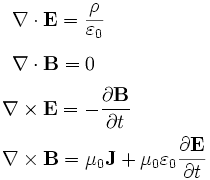SnorkBoard
Member
I really can't decide. Both deal with some pretty interesting concepts, and I'm having a hard time deciding which I'd actually want to go all the way with.
The one thing holding me back with biology, is after having a family thats a doctor, there is no way I want to get involved in the healthcare industry, and I'm not completely sure what else you can to with a biology degree. Ideally I'd live like Darwin's life, travel around on a boat and thinking about reefs and eventually discovering evolution or some break through.
The reason Physics is interesting are all the weird far out concepts like black holes, quantum mechanics, thinking about space, really Neil deGrasse Tyson is the one that really turned me on to all that stuff a couple of years ago. I did alright in math in high school (took calc. 1 and got a B, if that means anything), its do able and I generally understand it, but its not exactly "fun" or something I'd really enjoy doing in my free time or, I'm not sure how I feel about being wrapped up in it for the rest of my life.
The one thing holding me back with biology, is after having a family thats a doctor, there is no way I want to get involved in the healthcare industry, and I'm not completely sure what else you can to with a biology degree. Ideally I'd live like Darwin's life, travel around on a boat and thinking about reefs and eventually discovering evolution or some break through.
The reason Physics is interesting are all the weird far out concepts like black holes, quantum mechanics, thinking about space, really Neil deGrasse Tyson is the one that really turned me on to all that stuff a couple of years ago. I did alright in math in high school (took calc. 1 and got a B, if that means anything), its do able and I generally understand it, but its not exactly "fun" or something I'd really enjoy doing in my free time or, I'm not sure how I feel about being wrapped up in it for the rest of my life.

